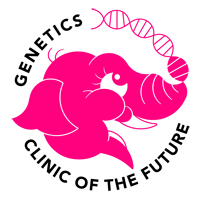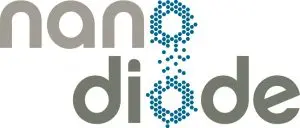European research projects
We regularly write, manage, coordinate and evaluate European research projects, mostly focusing on the social dimensions of emerging technologies (see below). We also help researchers write competitive research proposals, drawing on our longstanding experience of consecutive European Framework Programmes. Recent EU-projects include:

NANORIGO: Nanotechnology Risk Governance (2019-2023)
The NANORIGO project aims to develop and implement a transparent, transdisciplinary and science-based Risk Governance Framework (RGF) for managing nanotechnology risks regarding social, environmental and economic benefits. The role of DPF is to integrate the consideration of ethical, legal and social aspects within the risk governance framework.
GoNano: Governing nanotechnologies through societal engagement (2017-2020)
The GoNano project enables co-creation between citizens, researchers, industry, civil society organisations, and policy makers across Europe to align future nanotechnologies with societal needs and concerns. GoNano builds on the assumption that nanotechnologies are more likely to gain broad acceptance if they take public values and concerns into account at early stages of innovation. To test this hypothesis, GoNano will organise co-creation processes in different areas of nanotechnological application (Food, Health, and Energy), combining online consultations, face-to-face citizen engagement and stakeholder workshops. GoNano is a Coordination and Support Action funded within funded by the European Union under the NMBP Programme of Horizon 2020, Grant Agreement n° 768622. It is coordinated by the Danish Board of Technology Foundation and involves 10 partners from all over Europe. DPF leads the work packages on co-creation with professional stakeholders and on dissemination and communication. We will also contribute to the review of the state of the art in co-creation, training activities and policy outreach.


GCOF: The Genetics Clinic of the Future
(2015-2017)
The GCOF project aimed to ensure that the clinical implementation of genome technologies is relevant and responsive to the needs of all. Clinical geneticists, genomics researchers, bioinformaticians, social scientists, ethicists and patient representatives worked closely together to develop five fundamental elements of the genetics clinic of the future: data sharing and control, informed consent, patient and citizen involvement and the role of genome data within and beyond the clinic. The different disciplines did not work in parallel, as is often the case, but were collectively involved from the problem definition to the design of solutions. The GCOF project developed stepping stones for effective, patient-driven and sustainable care in the genetics clinic of the future. Moreover, GCOF performed whole-genome sequencing on ourselves to experience what having your own genome data at hand really means. The GCOF project was a Mobilisation and Mutual Learning Action within the European Commission’s Horizon 2020 HEALTH Programme. DPF was involved in dissemination and communication, policy feedback and project management, working closely with the coordinator to strengthen interdisciplinary collaboration and mutual learning within the project consortium.
NanoDiode: Outreach and Dialogue on Nanotechnologies in Europe (2013-2016)
NanoDiode organised outreach and dialogue activities throughout Europe to support the responsible development of nanotechnologies. The consortium brought together a range of stakeholders including industry, civil society organisations, researchers from the natural and the social sciences and artists. The project addressed different stages of the research and innovation process: from policy making and research to the diffusion of research outcomes in society. NanoDiode was a Coordination and Support Action in the NMP Cooperation Work Programme of the European Commission’s 6th Framework Programme. DPF was centrally involved in the conceptualization of the project, focusing on the conceptual underpinnings and deriving policy recommendations for nanotechnology governance.


SeeingNano: Visualising Nanotechnologies at the Nanoscale
(2014-2016)
SeeingNano aimed to enable citizens to ‘see at the nanoscale’, and enhance understanding and awareness of the breadth of nanotechnologies as well as the uncertainties and potential risks connected to them, leading to a set of SeeingNano Visualisation Tools. SeeingNano was funded as a Coordination and Support Action within the European Commission’s Horizon 2020 NMBP Prgramme. DPF worked with Studio HB on the SeeingNano Memory and Profiler, and introduced a broader societal perspective on the role of nanotechnologies in society, emphasising the social, ethical and legal dimensions of nanotechnological innovations.
Our other services
Commissioned research and consultancy
We are available for short-term research projects at the interface of science and society. We apply social science methods (such as participant observation, qualitative interviews, group work, document analysis), to real-world problems.
Workshops
We organise and moderate stakeholder workshops. By bringing together different perspectives and forms of expertise, new insights emerge.
Education and training
We offer education and training in technology assessment, user involvement and ethics, focusing mostly on demonstrating the added value of social research to scientists and engineers.